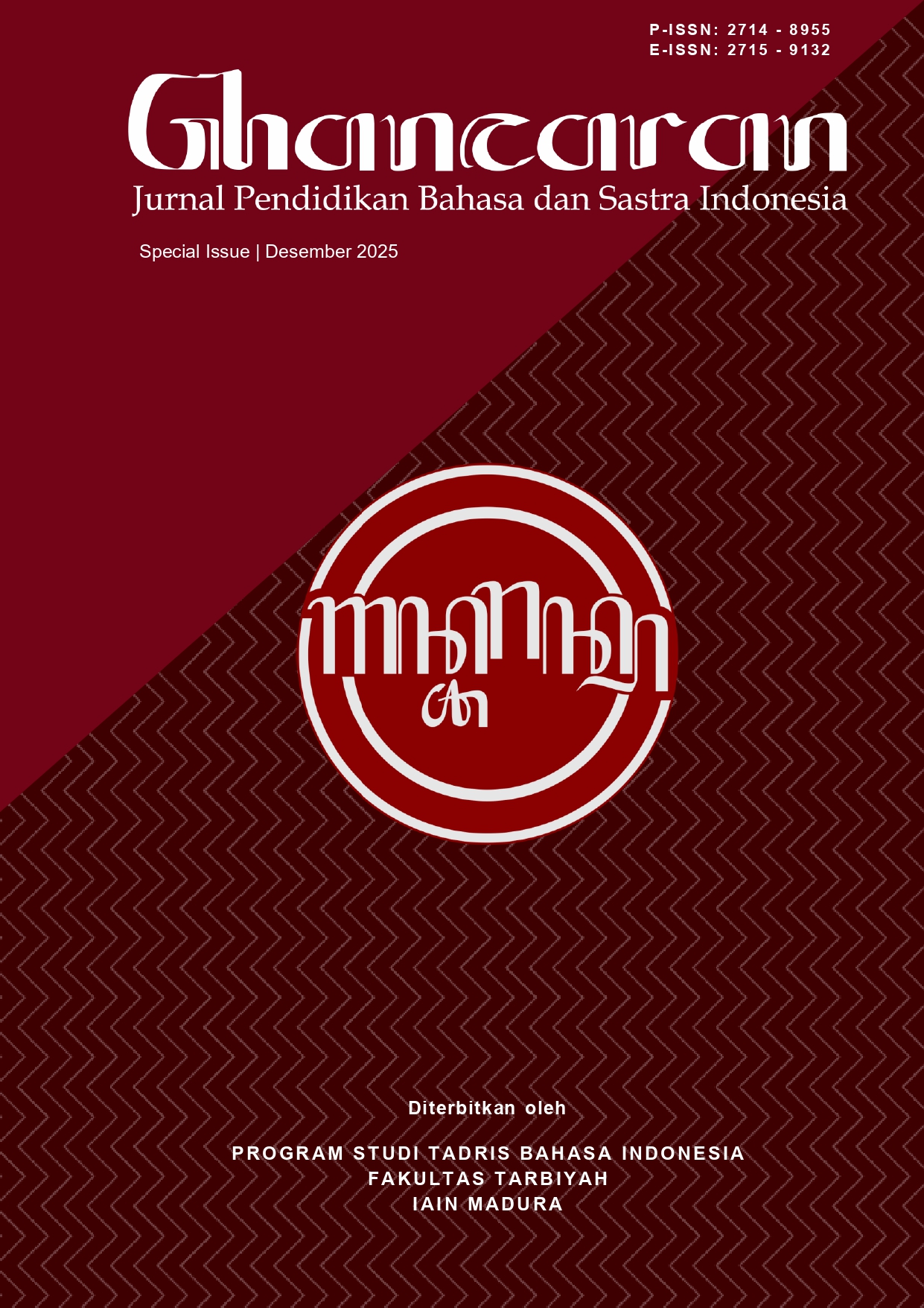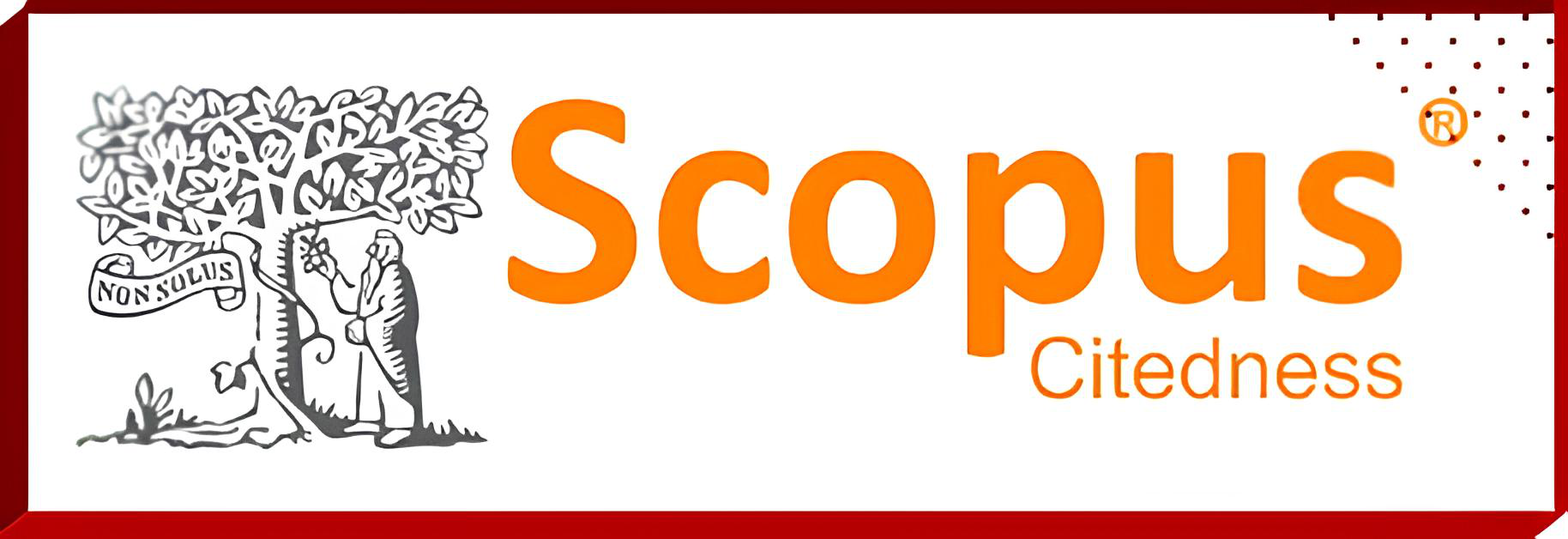Inovasi Pembelajaran Membaca Bahasa Jepang (Dokkai) melalui Penerapan Task-Based Language Teaching (TBLT) Berbasis Digital
 Abstract views: 180
,
Abstract views: 180
,
 PDF downloads: 73
PDF downloads: 73
Abstract
This article aims to identify the characteristics of the TBLT approach and its potential integration in learning to read Japanese (dokkai); describe the digitization of learning that can support the effectiveness of TBLT in Japanese reading skills (dokkai); and prepare a conceptual design for the implementation of digital-based TBLT that can be implemented in the context of dokkai learning in higher education. Using a conceptual research approach and literature review, this article provides a theoretical basis and direction for the implementation of digital task-based reading learning. The results show that in the context of dokkai, tasks designed according to the characteristics of the TBLT approach can be activities such as responding to Japanese news by making personal opinions, compiling a summary of a group reading, comparing two informational texts, or compiling a concept map based on the content of the reading. Then the use of digital technology is able to strengthen the implementation of TBLT, especially in the context of reading learning. Technology allows students to access authentic texts in multimodal form (text, videos, infographics), process information collaboratively, and express the results of understanding in creative formats such as blogs, podcasts, or videos. Furthermore, a conceptual model for the application of digital-based TBLT in dokkai learning in higher education was formulated. The model includes five main components: (1) authentic reading task selection, (2) integration of task support technologies, (3) collaboration in task completion, (4) reflection and metacognition, and (5) formative feedback.
Downloads
References
Abd Rahman, N. (2024). Impact of Task-Based Language Teaching (TBLT) on English Spoken Production and Interaction Among Malaysian Pre-University Students. Issues in Language Studies, 13(2), 103–122.
Adjei-Mensah, S., Boakye, N. Y., & Masenge, A. (2023). Improving the Reading Proficiency of Mature Students Through A Task-Based Language Teaching Approach. Reading & Writing, 14(1), 1–12.
Afzaal, M., Nouri, J., Zia, A., Papapetrou, P., Fors, U., Wu, Y., Li, X., & Weegar, R. (2021). Explainable AI for Data-Driven Feedback and Intelligent Action Recommendations to Support Students Self-Regulation. Frontiers in Artificial Intelligence, 4. 1–20.
Akimoto, S., & Mori, H. (2020). Japanese EFL Learners’ Reading Strategies and Comprehension: A Qualitative Investigation. Asian EFL Journal, 22(3), 88–109.
Asghar, M. Z., Afzaal, M. N., Iqbal, J., Waqar, Y., & Seitamaa-Hakkarainen, P. (2022). Evaluation of In-Service Vocational Teacher Training Program: A Blend of Face-to-Face, Online and Offline Learning Approaches. Sustainability (Switzerland), 14(21), 1–28.
Aznárez-Mauleón, M., López-Flamarique, M., & García-del-Real, I. (2020). Actividad Metalingüística en Una Tarea de Escritura Colaborativa en Educación Primaria. Ocnos, 19(3). 43–54.
Belda-Medina, J. (2021). Enhancing Multimodal Interaction and Communicative Competence through Task-Based Language Teaching (TBLT) in Synchronous Computer-Mediated Communication (SCMC). Education Sciences, 11(11), 723.
Booth, A., Sutton, A., & Papaioannou, D. (2016). Systematic Approaches to a Successful Literature Review (2nd ed.). SAGE.
Bürgler, S., & Hennecke, M. (2024). Metacognition and polyregulation in daily self‐control conflicts. Scandinavian Journal of Psychology, 65(2), 179–194.
Forsling, K., & Tjernberg, C. (2023). Intentions and flexibility: navigating complex literacy practices in primary education. Educational Research, 65(3), 301–319.
González-Lloret, M. (2016). A Practical Guide to Integrating Technology into Task-Based Language Teaching. Georgetown University Press.
González-Lloret, M., & Ortega, L. (2014). Technology-Mediated TBLT: Researching Technology and Tasks. John Benjamins Publishing.
González-Lloret, M., & Ziegler, N. (2021). Technology-Mediated Task-Based Language Teaching. In The Cambridge Handbook of Task-Based Language Teaching (pp. 326–345). Cambridge University Press.
Haristiani, N., & Christinawati, D. (2024). Interlanguage Pragmatic Competence of University Students: An Error Analysis of Apology Speech Act Strategies in Japanese Learners. International Journal of Language Education, 8(1). 1–19
Hrastinski, S. (2023). Informed design for learning with digital technologies. Interactive Learning Environments, 31(2), 972–979.
Kim, D. (2020). Learning Language, Learning Culture: Teaching Language to the Whole Student. ECNU Review of Education, 3(3), 519–541.
Kleinheksel, A. J., Rockich-Winston, N., Tawfik, H., & Wyatt, T. R. (2020). Demystifying Content Analysis. American Journal of Pharmaceutical Education, 84(1), 127–137.
Lim, L.-A., Dawson, S., Gašević, D., Joksimović, S., Fudge, A., Pardo, A., & Gentili, S. (2020). Students’ Sense-Making of Personalised Feedback Based on Learning Analytics. Australasian Journal of Educational Technology, 36(6), 15–33.
Liu, Y., & Ren, W. (2024). Task-Based Language Teaching in a Local EFL Context: Chinese University Teachers’ Beliefs and Practices. Language Teaching Research, 28(6), 2234–2250.
Loes, C. N. (2022). The Effect of Collaborative Learning on Academic Motivation. Teaching and Learning Inquiry.
Long, M. (2018). Generative second language acquisition and language teaching. Wiley Blackwell.
Lopes, A. (2020). Linking Content and Language-Integrated Learning (CLIL) and Task-based Language Teaching (TBLT) in an Effective Way: a Methodological Proposal. Onomázein Revista de Lingüística Filología y Traducción, 6, 5–22.
Michel, M. (2023). Task-based Language Teaching TBLT. Elia, 23, 317–328.
Oshima, S. (2024). Effectiveness of a Multimodal Approach During Online Reading Strategy Instruction. Reading in a Foreign Language, 36(1), 1–20.
Oxford, R. L. (2016). Teaching and Researching Language Learning Strategies. Routledge.
Pankeaw, P., & Satayaban, N. (2025). Task-Based Language Teaching (TBLT) in the Digital Age. Interdisciplinary Academic and Research Journal, 5(3), 153–172.
Putikadyanto, A. P. A., Wachidah, L. R., & Sari, S. Y. (2024). Menciptakan Generasi Peduli Lingkungan: Inovasi Ekokurikulum Berbasis Kearifan Lokal Madura di SMP Pamekasan. GHANCARAN: Jurnal Pendidikan Bahasa dan Sastra Indonesia, 47-62.
Setiawan, D. (2019). Strategi Pembelajaran Membaca Bahasa Jepang di Perguruan Tinggi. Jurnal Pendidikan Bahasa, 8(2), 101–110.
Taylor, C., & DiGiacomo, D. (2023). Approaches to Information Literacy Conceptualisation in Primary, Secondary, and Higher Education Contexts. Journal of Information Literacy, 17(1).
Wang, S. (2022). Critical Thinking Development Through Project-Based Learning. Journal of Language Teaching and Research, 13(5), 1007–1013.
Wekerle, C., Daumiller, M., & Kollar, I. (2022). Using Digital Technology to Promote Higher Education Learning: The Importance of Different Learning Activities and Their Relations to Learning Outcomes. Journal of Research on Technology in Education, 54(1), 1–17.
Xin, T. C., & Yunus, M. M. (2020). Improving oral reading fluency of struggling ESL readers with assisted repeated reading using graded readers. Universal Journal of Educational Research, 8(9), 4201–4212.
Copyright (c) 2025 GHANCARAN: Jurnal Pendidikan Bahasa dan Sastra Indonesia

This work is licensed under a Creative Commons Attribution-ShareAlike 4.0 International License.
Ghancaran: Jurnal Pendidikan Bahasa dan Sastra Indonesia uses an Open Access Policy under the Creative Commons Attribution-ShareAlike 4.0 International License. Authors publishing in this journal agree to the following terms:
- Ghancaran Journal holds the copyright and grants the journal rights for first publication with the work simultaneously licensed under a

The work is distributed under Creative Commons Attribution-ShareAlike 4.0 International License which allows others to share, copy, and redistribute the material in any media or format and adapt, remix, change, and develop the material even for commercial purposes, as long as it is stated credit and license derivative works under similar terms. - Authors may make additional contractual arrangements for non-exclusive distribution of the journal's published work version.
- Authors are permitted to post their work online (e.g., in institutional repositories or on their websites) before and during submission, as doing so may lead to productive exchange.



















